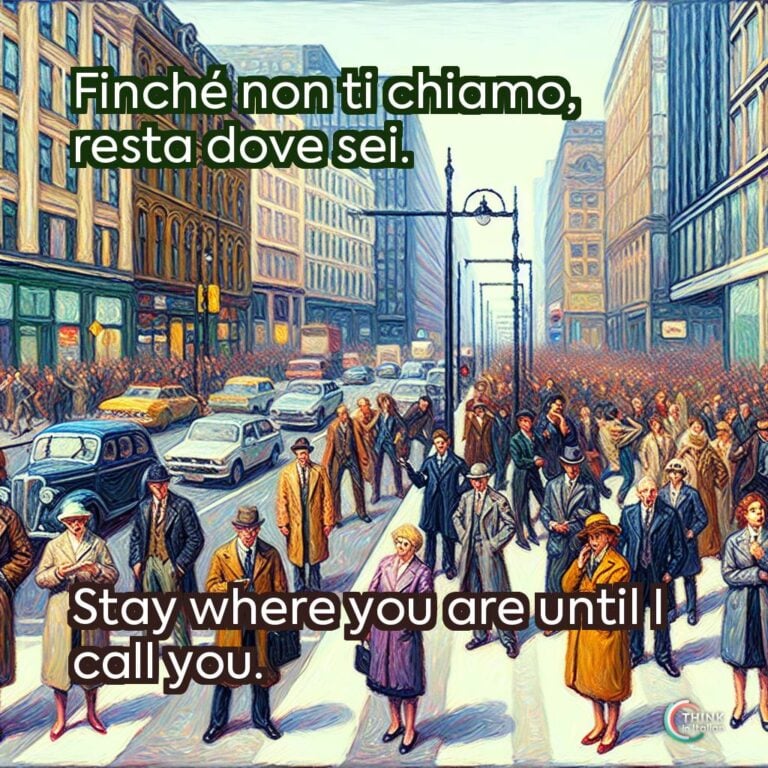“Until” in Italian
The word “until” plays a vital role in any language, as it allows to express time limits, deadlines, or the end point of an action or event.
In Italian, “until” can be translated in different ways depending on the context, each tailored to specific sentence structures, timeframes, or conditions.
These variations reflect subtle differences in meaning, allowing speakers to be precise in describing how long something lasts, up to what point an action continues, or what conditions must be met for an event to occur.
Here, I will give you an overview of all its possible translations, with examples, and contextual use.
How to say “Until” in Italian
“Fino a” for Time and Location
The most common translation of “until” in Italian is fino a, used to refer both to a specific time and time expressions, and location and physical places. For example:
Lavoro fino a mezzogiorno.
I work until noon.
Camminiamo fino al parco.
We walk until the park.
Notice the second example: remember that whenever you are dealing with a preposition – in this case the preposition a – and this is followed by a definite article, you must combine them together to form preposizione articolata.
Make sure you know how to say the time in Italian to use fino a with temporal expressions!
“Fino a Quando” for Actions and Time Limits
When you want to refer to how long something will last or when something will stop happening, fino a quando is more precise.
It is the Italian equivalent of saying “until when” in English. However, notice that when quando is used as a conjunction, as in this case – it is a conjunction because it links two sentences together – it introduces an entire new clause.
Aspetterò fino a quando non tornerai.
I’ll wait until you come back.
Fino a quando vuoi restare?
Until when do you want to stay?
Also notice that fino a quando is frequently followed by a double negative with non, which is a characteristic feature of the language but does not alter the meaning.
A more formal alternative of fino a is sino a, which has the same exact meaning and use. The only difference is that it is less often found in conversation, and is more limited to writing.
Resterò sino a domani.
I’ll stay until tomorrow.
“Finché” for Conditions
When until introduces a condition that must be fulfilled before something else can happen, in Italian we use finché. This phrase is often paired with non to refer to an action or state that hasn’t yet occurred.
Non smetterò finché non avrò finito.
I won’t stop until I’m done.
Aspetterò qui finché non arriverai.
I’ll wait here until you arrive.
Just like fino a quando, finché is often accompanied by a double negative. When used with this meaning, it is very similar to saying “as long as” in Italian.
“Da… fino a” for Ranges
When you want to express a range of time or location, you can use the phrase da… fino a, which literally translates to “from… until“.
This construction marks the starting and ending points of an action, and gives a clearer sense of the timeframe or distance involved, for instance:
Lavoro da lunedì fino a venerdì.
I work from Monday until Friday.
Camminiamo da qui fino al centro.
We walk from here until downtown.




